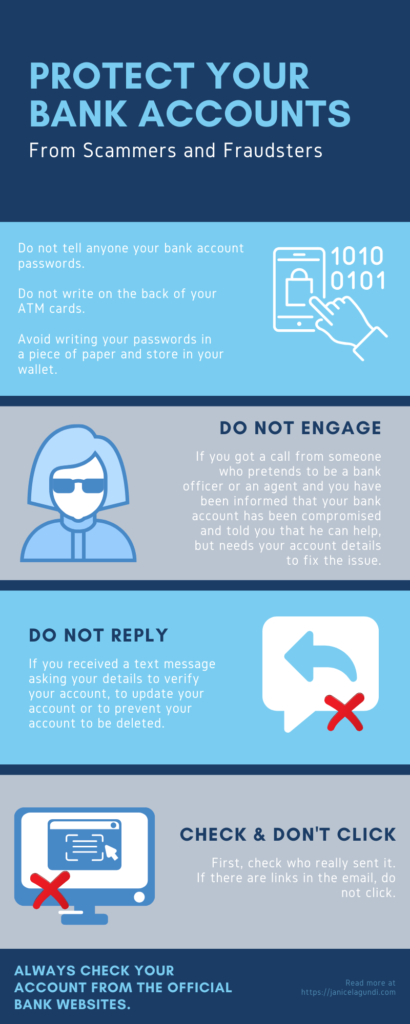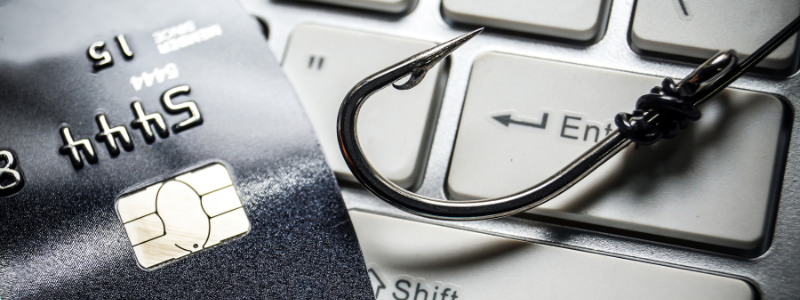Introduction
This page aims to show how we can protect our bank accounts from anyone who wants to intrude and get our account details so that they can log into our bank accounts on our behalf and then use it to benefit their illegal deeds.
Tips
- Do not tell anyone your bank account passwords.
- Do not write on the back of your ATM cards.
- Avoid writing your passwords on a piece of paper and store them in your wallet.
- If you got a call from someone who pretends to be a bank officer or an agent and you have been informed that your bank account has been compromised and told you that he can help, but needs your user name, password, Card Verification Value (CVV) or One-Time PIN (OTP) to fix the issue, DO NOT ENGAGE. You can politely refuse the offer and say you will check it yourself.
- If you received a text message asking your user name, password, CVV or OTP to verify your account, to update your account or to prevent your account to be deleted, DO NOT REPLY.
- If you received an email from your bank, First, check who sent it, scammers/fraudsters can be creative in tricking their next victim. They can send fake emails and website links, which are almost similar if compared to the original. If there are links in the email, DO NOT CLICK.
- Remember, your bank will never ask for personal details and account information in ways mentioned in Tips #4 – #6.
- Always check your account from the official bank websites.
Be suspicious when you are asked to provide your bank accounts because:
- Your account was randomly selected and you have to claim the prize.
- Your account will be closed immediately.
- You were asked for an online donation and they need the details to process it.
Additional Resources




